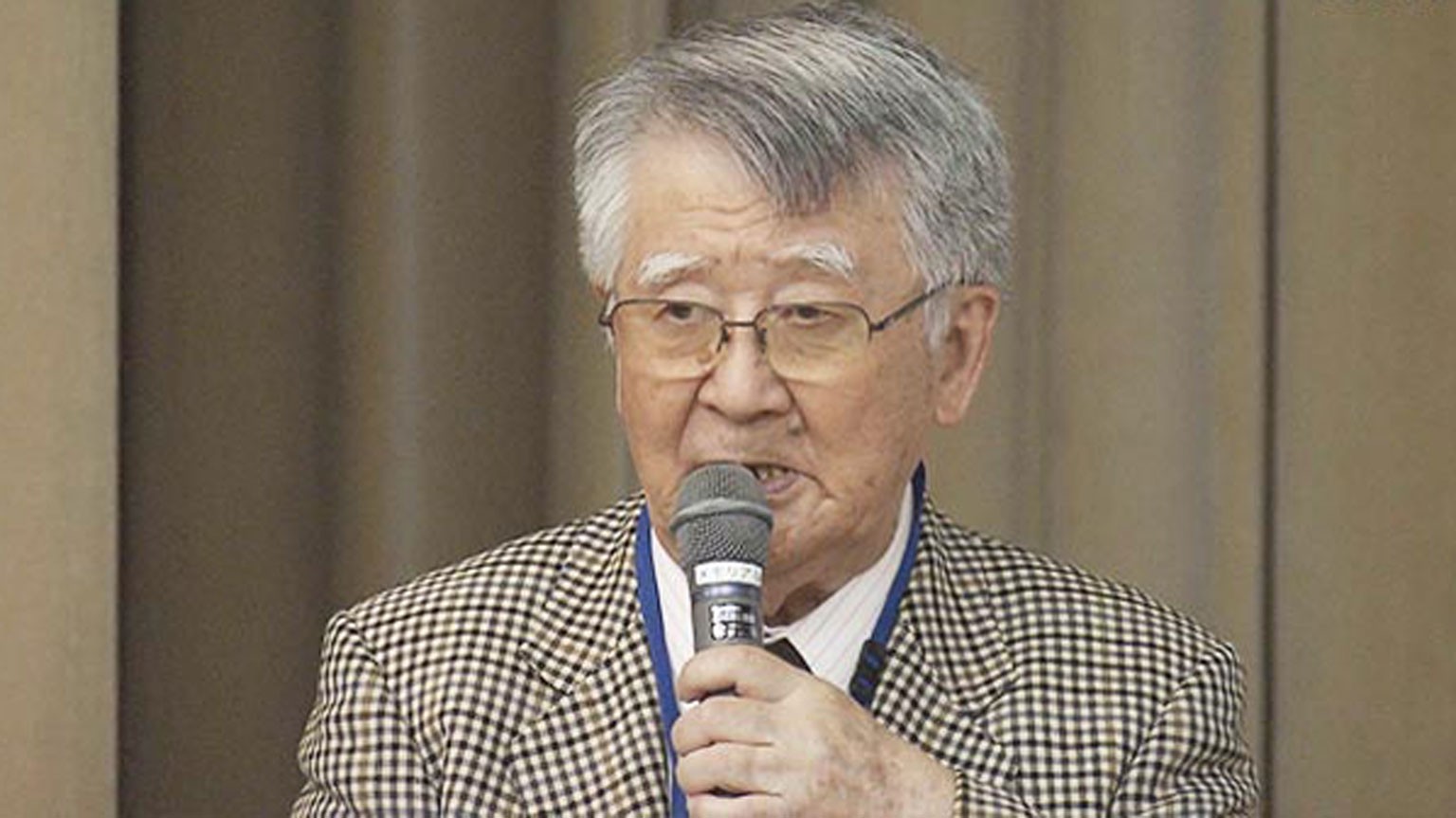"It's now or never"
91-year-old Shunichiro Arai went on stage in front of around 50 people in July and posed a searing question: "Who can stay silent? Is it ok for this to have happened?" he asked. "This is what I desperately want to pass on to you."
The message came as part of a training course for "A-bomb Legacy Successors." The sessions are meant to pass on the experiences of hibakusha, the survivors of the atomic bombings. Arai was speaking to the course participants for the first time in eight years.
Arai gave the sessions until 2015, when his health suddenly deteriorated. He was diagnosed with cancer of the kidney and prostate. Despite undergoing surgery, the cancer in his kidney advanced to stage 4, leaving him with roughly a third of its function. He continues monthly treatments at a hospital.
Despite his severe health condition, Arai was determined to share his experience of the atomic bomb, even while undergoing cancer treatment. He was motivated by a sense of impending crisis. With Russia's invasion of Ukraine continuing, he felt that if he didn't act now, he would not have the opportunity to do so in the future.
"It's now or never," Arai says. "I don't feel any symptoms from cancer, I have to act now. The most important thing is to convey my approach to life while I'm still here. It's vital to share this as a living person and be able to convey emotions and motivations directly to people."
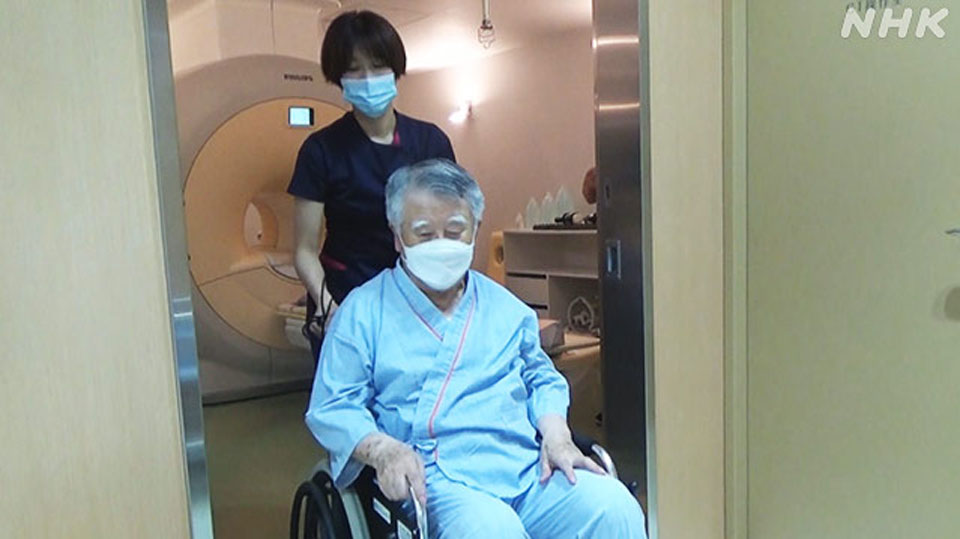
'It's okay to go home on August 6'
Seventy-eight years ago, Arai was in his first year at what is now Hiroshima University Junior High School. He and his classmates were in a rural village located in Higashihiroshima City as part of a mobilized corps to boost food production.
Arai stayed at a temple and helped with farmwork. "When we pulled weeds, we were all exhausted, as if leeches were clinging to our legs," he says.
A teacher on patrol came and said, "Sorry, but if you hang on just a bit longer, we'll let five of you go back to Hiroshima," recalls Arai. He believed the teacher's words and put his all into the farmwork.
It was the first Saturday of August, so all 100 or so of the students gathered in the temple's main building, and those with the highest grades were announced. Arai was the first student called, and he was told he could return to his home in Hiroshima City. He left on August 6th. Arai and his friends were on the train station platform at 8:15 a.m.
Arai says, "There was a bright flash, and the sky towards Hiroshima instantly burned. It was burning in many different colors, green, purple, and blue ... When it seemed the blaze had come over my head, it felt like I was struck from head to toe. I heard a whooshing sound and looked up just in time to see a lone B-29 flying away right above me."
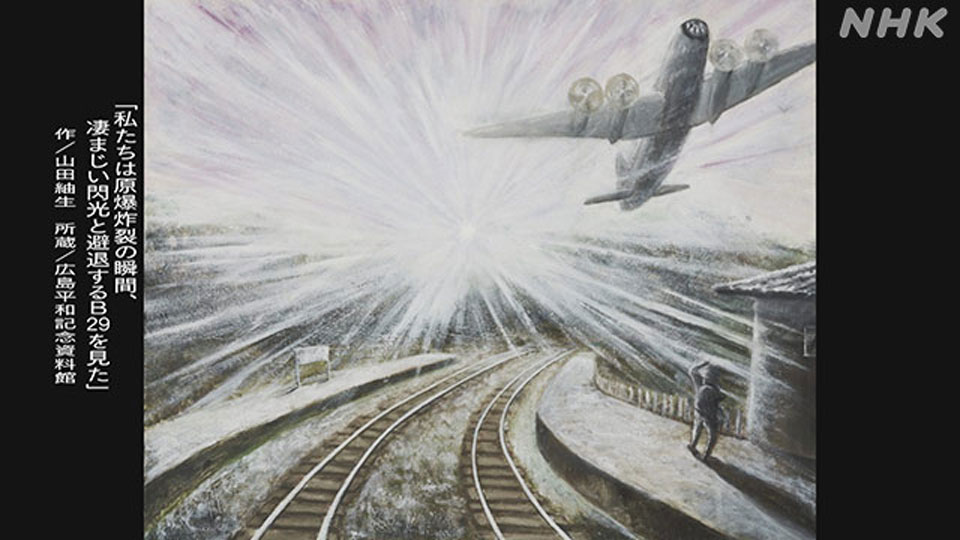
At the station, chaos immediately broke out. Not knowing what was going on, Arai got on the late train that had finally arrived, but it stopped at the next station. He got off and walked 15 kilometers to Hiroshima.
On his way home, he crossed a bridge close to Hiroshima Station that was packed with escaping hibakusha. While crossing, he encountered a young girl who appeared to be about in first grade and her 3-year-old sister.
"They were naked, and their hair was frizzy. Their faces were so swollen, they looked like balloons, but their eyes, noses, and mouths were sunken in. I stood frozen as they held hands and passed me on the right. The older sister encouraged her and said, 'Hold on,'" recalls Arai.
"At that moment, I desperately wanted them to live. However, I couldn't do anything for them just by watching. This is the real situation of the atomic bomb. Is it ok for this to happen?"
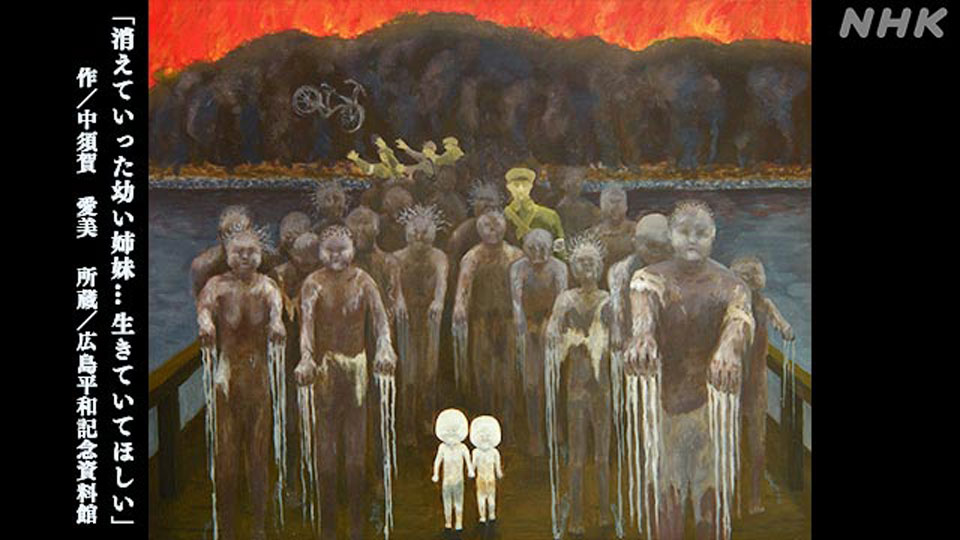
Saw horrors akin to hell
Water tanks, originally built to contain fires, were filled with bodies. Swollen horses, their four legs sticking up, were rolling around in the water. Even amid such scenes, Arai set his sights on home without any trace of fear.
"I believe that over half of the embers we stepped on and jumped over were human remains," he says. "I saw horrors akin to hell."
Arai's house was about 3 kilometers from the hypocenter of the atomic bomb. Upon arriving home, he found the roof of the house torn off, and the walls and window glass blown out. His parents were sitting in the middle of it all. Both parents had shards of glass embedded throughout their bodies and had sustained serious injuries, but they survived.
Unable to talk about it for over 60 years
Sadly, Arai's close friend who went to the same elementary school passed away. When he heard the news, he rushed over to his friend's house and found him lying in the rubble.
"My son said he didn't want to die. He took his last breath knowing he was going to die," his friend's mother told him.
Some days later, when Arai unexpectedly met his friend's mom in town, she looked at his face and immediately started crying.
Arai remembers, "I think she wanted to say something but didn't. She probably wanted to say, 'If my child was healthy, he would be here just like you.' I couldn't stand it and ran away."
A large number of children fell victim to the tragic events of that day. No matter how long people searched, some were never found.
Arai left Hiroshima after escaping death and has continued to carry the burden of his survival. For over six decades, he rarely spoke about those days.
'The duty of hibakusha'
Arai was first able to talk about his experience roughly 10 years ago at age 80. As hibakusha and their families aged, he felt it was his duty to speak up.
"60 years after the atomic bomb, I looked back and realized that the number of hibakusha and their families, who should be with us, were dwindling. If nobody truly passes on their experiences, it will be as if Hiroshima and Nagasaki never took place. I can't let that happen. I was compelled by my sense of duty as a hibakusha, that's what drove me to take action," he says.
In 2012, Hiroshima started the "A-bomb Legacy Successors" program in collaboration with Arai. He trained 13 Legacy Successors before his health declined four years later. They have passed on Arai's atomic bomb experience both in and outside of Hiroshima. Among them are parents of young children who share Arai's experience while raising the next generation.
When the training resumed this year, concerns about the progression of Arai's cancer prompted meticulous preparations to condense the previous two-year course into just one.
This is what Arai said on the first day of training:
"It is the duty of hibakusha to pass on our experiences of Hiroshima, the stories of horror akin to hell, to future generations. I want all of you Legacy Successors to come together as comrades and face this together."
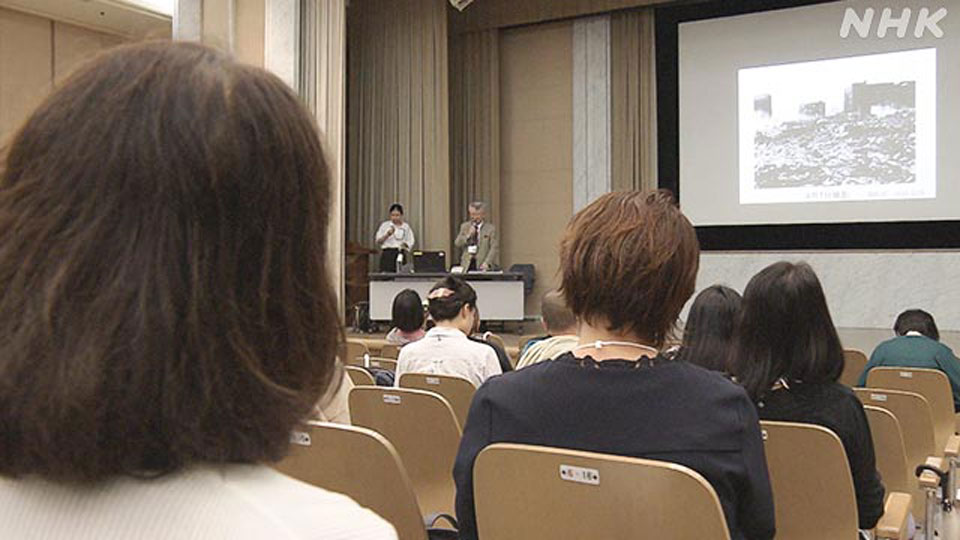
One of the participants said, "I truly felt a sense of urgency and the gravity of his words. I really have to study more."
Along with memories of unspeakable tragedy, Arai also shared his hope.
"What we can do is speak up, make a statement, and raise our voices. Like those of us who witnessed the atomic bomb, I hope you passionately convey our stories with the same dedication."
